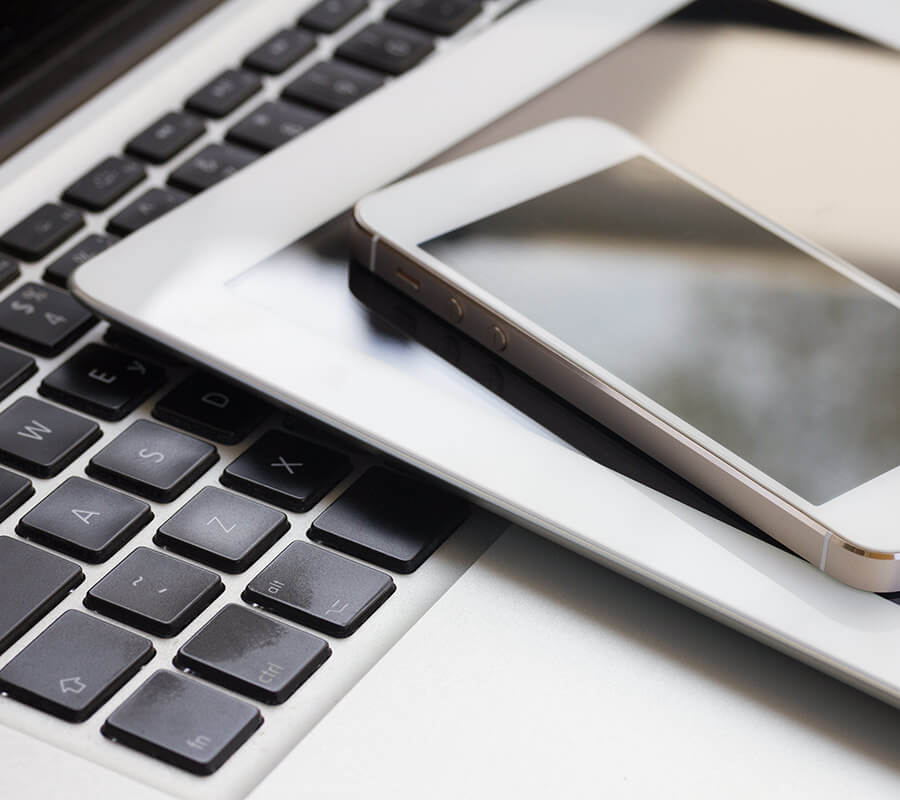
It seems everyone these days has a smartphone. Or a smart TV, a tablet, or an ebook reader. Or all of the above – and more.
When you add it all up, you may find you have thousands and thousands of dollars tied up in technology. It’s a significant investment, and one your homeowners insurance or renters insurance can likely help you protect.
How? A homeowners policy or a renters policy typically includes personal property coverage to help protect the investment you’ve made in your stuff. And yes, that usually includes your electronics.
Let’s take a look at how the insurance policy you already have (or should have!) may help protect the devices you love.
Homeowners Insurance and Your Electronics
Your homeowners policy isn’t just for your house. In most cases, it’s for the stuff you have inside it, too, including the stuff you carry with you when you walk out the door. To determine how much coverage you have for your stuff, take a look at your personal property limits, or Coverage C on your homeowners policy. Typically, it’s a percentage of Coverage A, which is the primary part of your policy that covers your home.
Say Coverage A is $200,000 and the policy gives you 50 percent of that for personal property. You’d have $100,000 for your household stuff. Items located elsewhere, such as with a student away at college, usually receive a percentage of Coverage C, such as 10 percent.
Renters Insurance and Your Devices
If you rent, your landlord’s insurance will not cover your possessions. Landlord insurance covers the building. So, be sure to have renters insurance to cover your things. It’s usually inexpensive, but you’ll want to make sure you select personal property limits that are appropriate for you.
Replacement Cost Coverage for Your Devices
Electronics can depreciate rapidly, so you may want personal property coverage that provides replacement cost value for covered items and losses. This provides you with the amount you need to buy a new device, instead of paying you what the old one was worth.
Personal Property Claims and Electronics
No matter what kind of coverage you have, any damage or loss must be caused by an event your policy covers. The typical insurance policy doesn’t cover damage due to normal wear and tear, for example. Or damage due to earthquakes and floods.
Your Deductible and Your Devices
For your policy to apply to a covered incident, the loss also has to be greater than your deductible. So, if your $300 phone is stolen and your renters deductible is $500, you won’t receive any coverage for the loss.
Policy Exclusions and Electronics
Keep in mind that some policies have exclusions or specific limits on certain items. Those items either won’t be covered at all or will only be covered up to a certain amount. Check your policy to see if either applies to any or all electronic devices. Talk to your independent insurance agent if you don’t understand the exclusions or limits. In some cases, you can purchase separate coverage for individual items that might otherwise receive limited coverage under the typical policy.
Also, if you run a business, the equipment or devices you use for it won’t be covered by a typical homeowners policy or renters policy. The policies are for personal belongings.
Having device insurance as part of your personal property coverage is certainly a relief. However, keep in mind that the most difficult things to replace often are not the devices themselves, but the data they contain. Standard homeowners and renters policies don’t cover data loss or recovery costs, so remember to regularly back up your computer and other devices.
Reposted with permission from the original author, Safeco Insurance.

